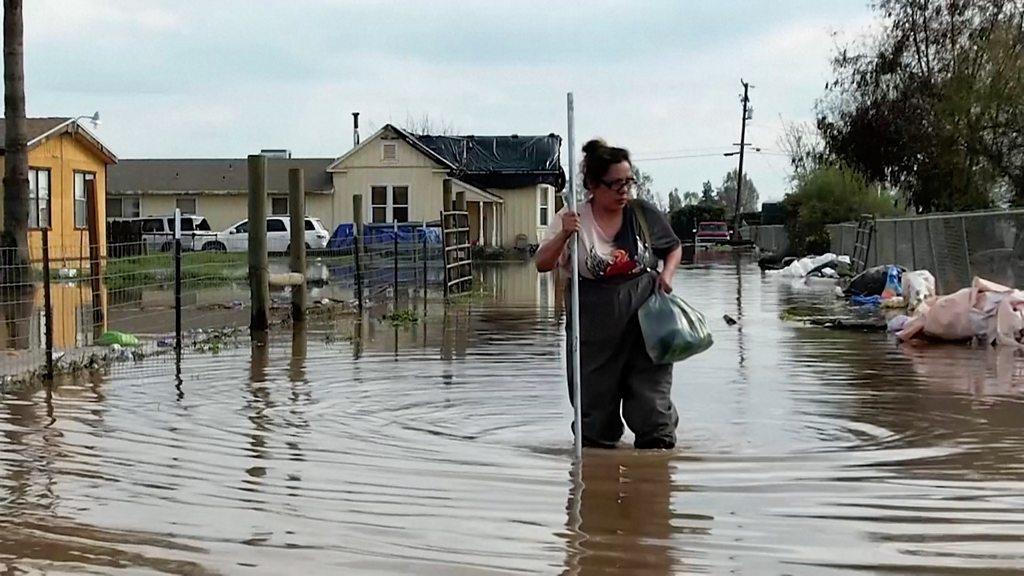South Lake Tahoe: The mountain town buried by California winter chaos
- Published
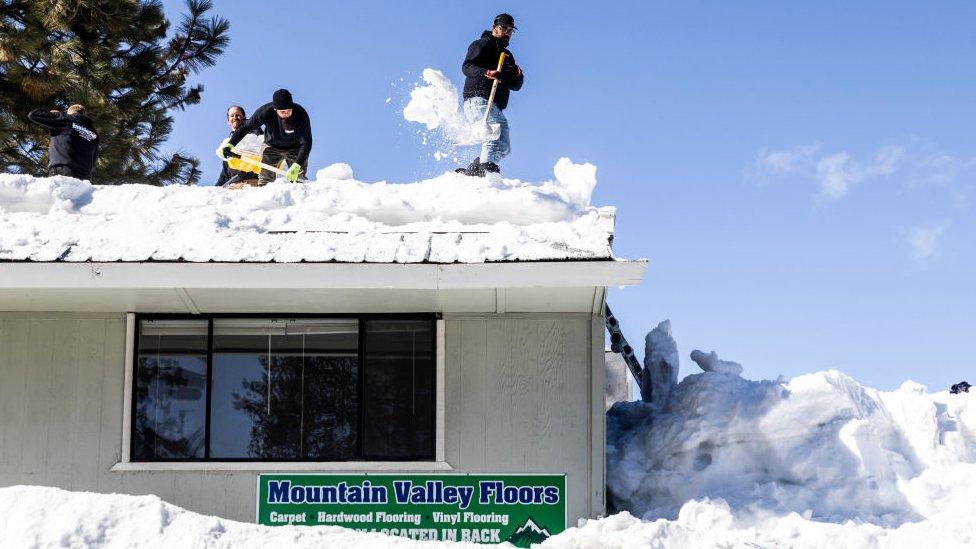
Few places experience both the beauty and the fury of California's natural world like South Lake Tahoe. The picturesque city of 21,000, nestled high in the Sierra Nevada mountains and famed for its ski resorts, has endured a wildfire, drought, and now, dangerous amounts of snow - all in a roughly two-year period.
Throughout March, high-altitude storm systems known as atmospheric rivers pummelled South Lake Tahoe during what climate scientists have dubbed a winter for the history books.
The heavy snowfall and precipitation collapsed roofs, closed grocery stores, trapped residents in their homes, and rendered highways impassable. Parts of the region remain under flood advisories that could continue into spring, as the snow is expected to melt with incoming rain and warmer temperatures.
City leaders and climate scientists say that the weather extremes South Lake Tahoe is experiencing portend a dramatic future for the entire state.
"Moving to the mountains you have a healthy respect for what that brings," Lindsey Baker, a deputy city manager for South Lake Tahoe told BBC News.
"But the extraordinary nature of this season, the year and a half of natural disasters that we faced as a community….We are facing the direct impacts of climate change."
Watch: Man in waist-high snow in unusually severe winter in California
A winter for the record books
California rang in the New Year with a series of atmospheric rivers which caused historic flooding and landslides up and down the state. Several people died.
Another bout began in late February and early March, dumping historic levels of snow in the state's high-elevation mountain ranges. Snow accumulated on the peaks around Los Angeles, even at lower elevations where precipitation usually falls as rain.
While beautiful, and a relief for the state's dwindling water supply, the storms wreaked havoc.
Multiple counties are under emergency orders. Communities in the San Bernardino Mountains, about a two-hour drive due east from Los Angeles, were recently devastated by heavy snowfall that damaged structures and left unprepared residents unable to leave their homes for basic supplies.
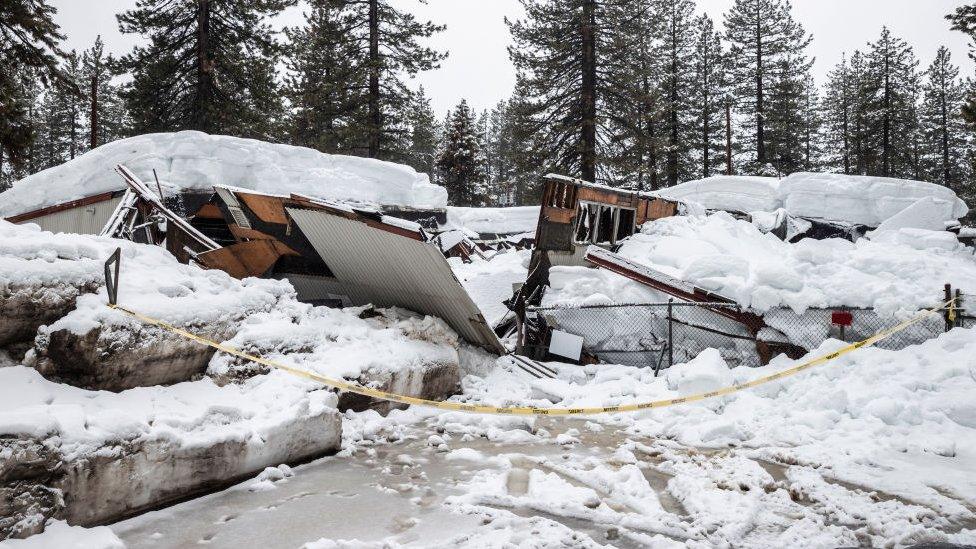
One of the buildings that collapsed due to the recent snow in Tahoe City
Farther north, the Sierra Nevada Mountains, home to iconic locations like Lake Tahoe, Yosemite National Park, and Mammoth Mountain, now have record levels of snowpack.
"In a longer term context, this is not an extraordinarily cold winter, but it is an extraordinarily wet and snowy winter," said Daniel Swain, a climate scientist with the University of California, Los Angeles.
On social media, South Lake Tahoe posted photos of snow bursting through kitchen windows and smashing through their entrances. On 10 March, a gas station canopy collapsed like a pile of toothpicks because of all the weight it had accumulated. Emergency officials frantically warned residents to clear snow from their roofs.
So much snow had accumulated on Susan Korcher's home that her son was able to kayak off the roof. She estimated 6ft (1.83 metres) to 8ft in total . From some angles, her home looked completely buried.
Allow X content?
This article contains content provided by X. We ask for your permission before anything is loaded, as they may be using cookies and other technologies. You may want to read X’s cookie policy, external and privacy policy, external before accepting. To view this content choose ‘accept and continue’.

"This has just been non-stop," said Ms Korcher, a forester with the University of California who has lived in South Lake Tahoe for 16 years.
"Nothing but snowing and raining pretty much for months. It's much more intense I would say than any other winter I've lived here."
The climate change link to epic snowfall
One might find it hard to imagine that a warming planet would cause such an event. But, according to Mr Swain, that's exactly what's happening.
The world has already warmed by about 1.1C since the industrial era began, and temperatures will keep rising unless governments around the world make steep cuts to emissions. That transformation has had a profound affect on California.
"I think the reality is, California's climate is becoming even more California-like, if you will," said Mr Swain. "It was already a place that saw these wide swings between drought and flood. But these swings have become larger."
"We've had some of the driest years on record and the wettest year on record, in the same decade," he said.
"This hydro-climate whiplash, this precipitation variability, it's always been high in California, and it does appear to be increasing. And that's something that's clear in predictions…of warming climate."
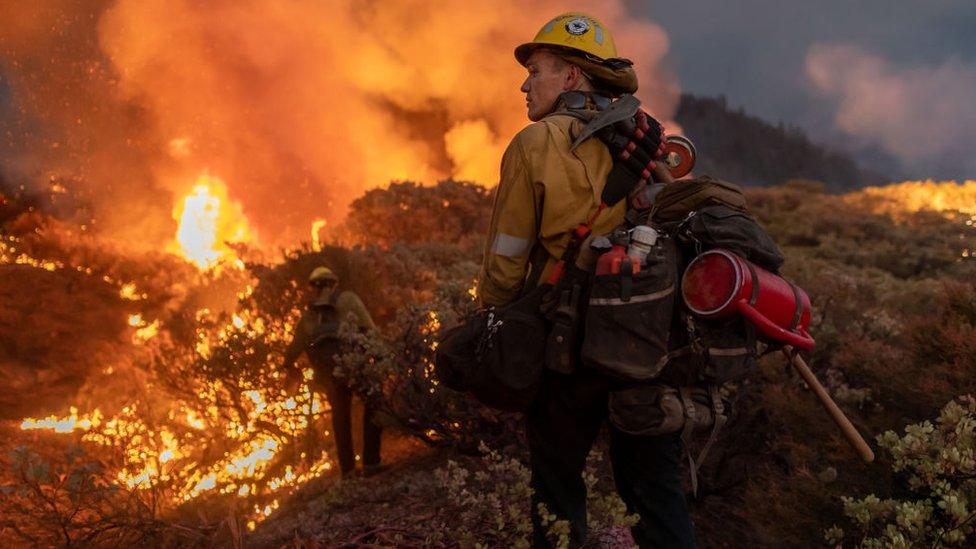
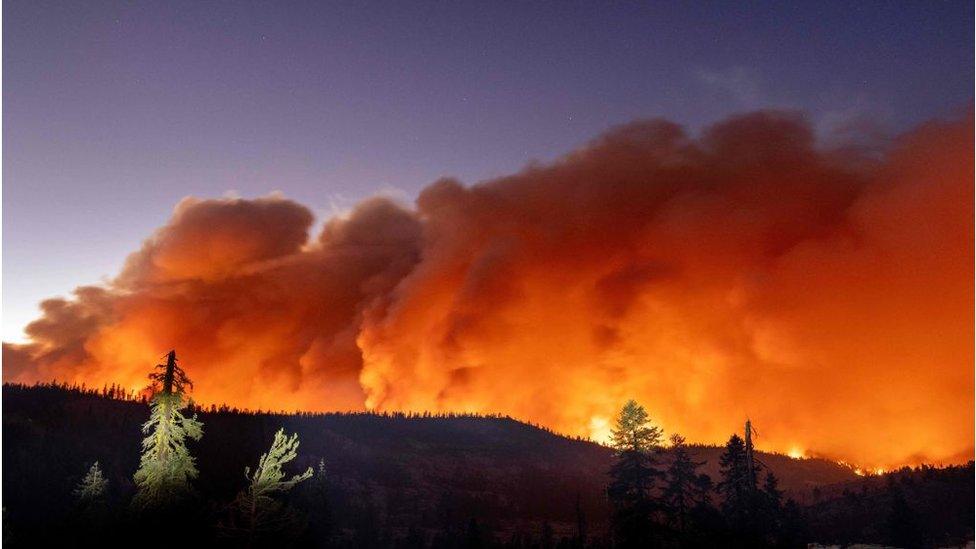
Before receiving historic amounts of rain, Lake Tahoe was suffering from the effects of California's historic drought.
In August 2021, the Caldor fire ripped through a dry Sierra Nevada, burning 221,000 acres and forcing the entire population of South Lake Tahoe to evacuate.
That same year, the lake's water levels fell to its lowest point since 2016. Climate change has been linked to heightened conditions for wildfires and droughts around the world, including in California.
The wild swings in climate have tested even stalwart South Lake Tahoe residents like Ms Korcher.
Allow Facebook content?
This article contains content provided by Facebook. We ask for your permission before anything is loaded, as they may be using cookies and other technologies. You may want to read Meta’s Facebook cookie policy, external and privacy policy, external before accepting. To view this content choose ‘accept and continue’.

"With fires, that's been getting harder," Ms Korcher said. "This year, there's huge winter seasons too. It's an extreme in the other direction."
She feels prepared to weather intense winters and has no plans to leave South Lake Tahoe. But for those not ready to deal with what Mother Nature has in store, Ms Korcher had blunt advice.
"You probably shouldn't live in the mountains," she said. "I'd head downhill."
Related topics
- Published13 March 2023
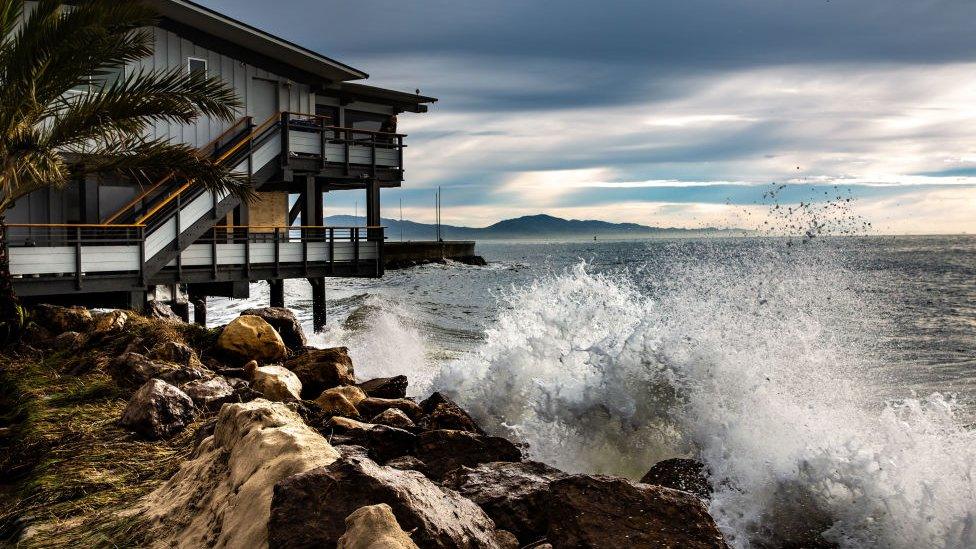
- Published16 March 2023
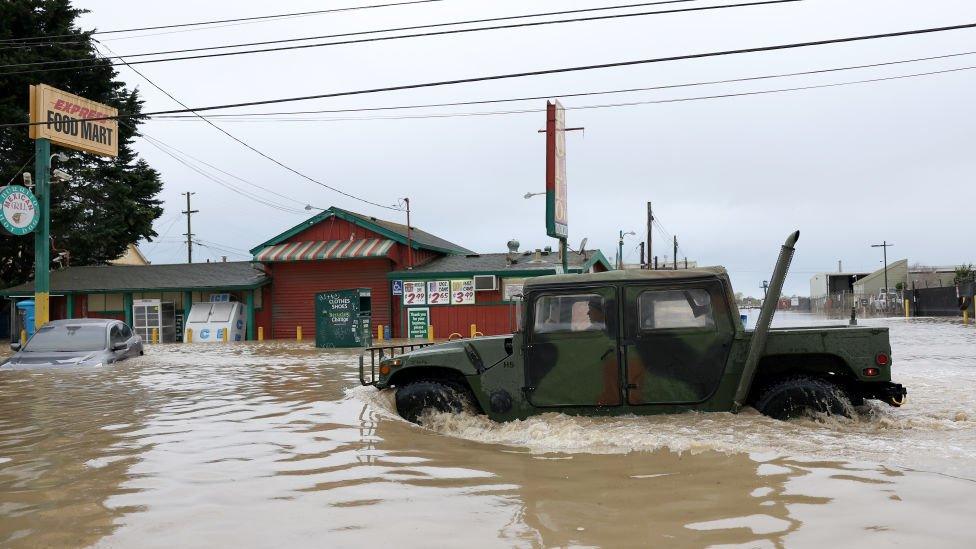
- Published17 March 2023
